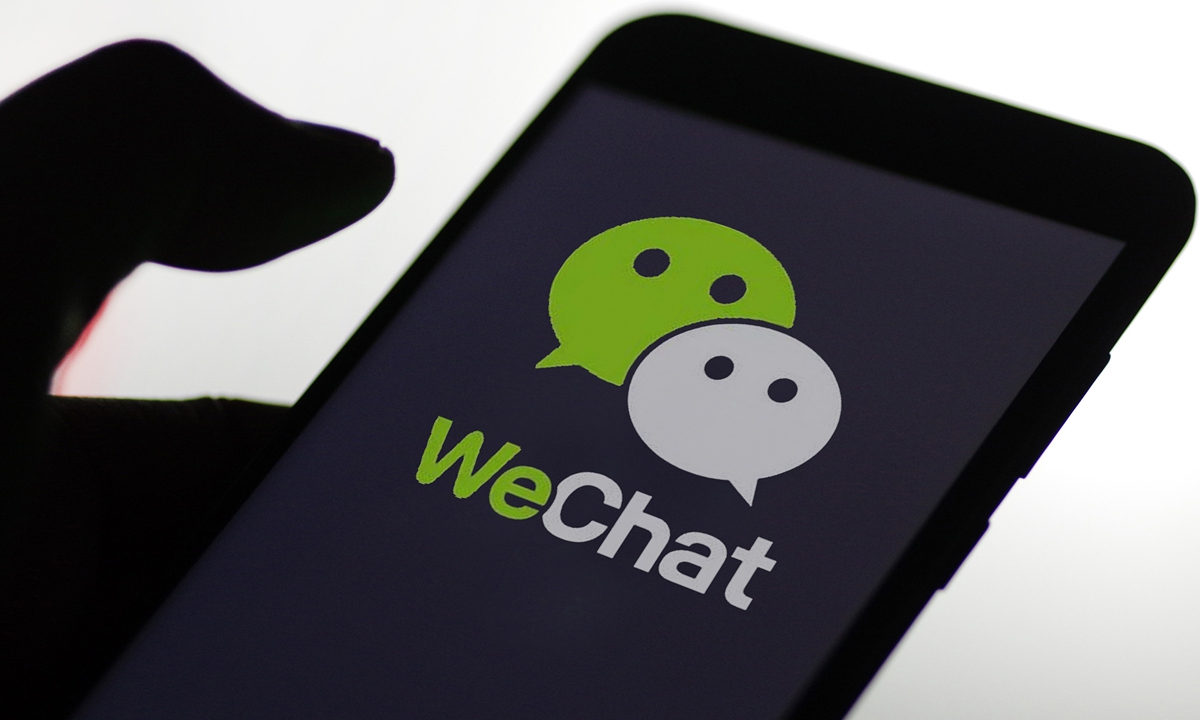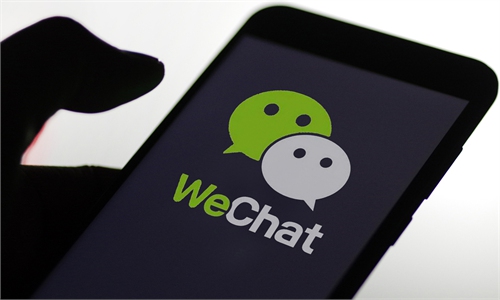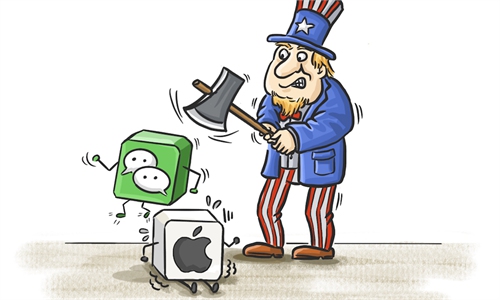SOURCE / INDUSTRIES
Dead end for Washington's WeChat ban as US faces legal pressure
Comments on app use show US under legal pressure

WeChat Photo:VCG
The Trump administration's proposed WeChat ban, essentially a political farce, won't come to fruition, industry observers said on Thursday after the US government's assurance that WeChat users won't be penalized gave a crucial hint that Washington is cowering under mounting legal pressure.
"At present, activity involving the WeChat app is not prohibited," the US Department of Justice (DOJ) said in a filing on Wednesday, responding to a motion by the US WeChat Users Alliance.
US Commerce Secretary Wilbur Ross doesn't plan to target WeChat users whose use or downloading of the app is intended to convey personal or business information, and such users wouldn't be subject to criminal or civil penalties, according to the filing, which came ahead of the Sunday (September 20) deadline for determining the fate of the Chinese-owned messaging app.
US President Donald Trump issued two executive orders on the same day in early August, proposing to ban WeChat and ByteDance's hugely popular short video app TikTok, citing national security concerns.
Ross is set to define by Sunday what WeChat transactions will be banned.
In an effort to defy the ban targeting WeChat, a lifeline for especially the Chinese-American community, the US WeChat Users Alliance was set up shortly after the executive orders were announced. The alliance has filed a motion in a US federal court in San Francisco seeking a preliminary injunction against the WeChat ban.
The first hearing on the request is scheduled for Thursday (US time).
The Justice Department's compromise is barely enough to appease the plaintiffs.
The department's representations and assurances "fall far short of what is needed to address the serious and substantial First and Fifth Amendment issues raised" by the WeChat ban, the alliance said in a response to the Wednesday filing.
The DOJ statement fails to provide clarity about what the commerce secretary will or won't do by the deadline, read a copy of the response the Global Times obtained on Thursday,
The commerce secretary "has not taken off the table his ability to ban the use of WeChat by anyone," the alliance argued in its response, citing the possibility of unveiling "a definition of transaction and an enforcement order directed at Tencent itself, or entities that contract with Tencent to provide products or services that allow WeChat to function in the US."
"Having first failed to articulate any actual national security concern, the administration's latest 'assurances' that users can keep using WeChat, and exchange their personal and business information, only further illustrates the hollowness and pre-textual nature of defendants' 'national security' rationales," the alliance stressed.
Although the DOJ statement's legal efficacy is in doubt, the compromise plan itself indisputably indicates that the US government is under growing legal pressure to defend its abuse of administrative power, observers said, predicting the WeChat ban will come to nothing.
"The ban has been a political farce from the very start and it is destined to end up being a joke," Shen Yi, professor at the School of International Relations and Public Affairs of Fudan University, told the Global Times on Thursday.
The DOJ's latest move, which is mostly an attempt to clean up the mess created by the Trump administration, indicates that the US government is essentially a "paper tiger" that came up with a groundless ban, which will be shown to be infeasible at the end of the day, Shen commented.
It seems increasingly the case that the US government, revolving around Trump, is purely adept at "trash talk," whose bluffing is often seen to yield no actual results, said Liu Dingding, an independent internet analyst in Beijing.
The proposed prohibition exemplifies a prevailing strategy in the US that aims at containing China, Liu told the Global Times on Thursday.
"If the US ultimately blocks WeChat or TikTok, it would arouse concerns across the globe that foreign-owned apps have no future in the US, where they are at the mercy of a rogue government."
Liu reckoned the US wouldn't risk a near-universal condemnation.
During an information-sharing session hosted by the American Chamber of Commerce in China (AmCham China) Northeast Chapter on Thursday about the success stories of bringing foreign employees back to China, Angela Beach, assistant principal of the primary school of the Dalian American International School, said "WeChat and airport Wi-Fi saved me and my family when we arrived in Guangzhou and began our 14-day quarantine."
In another sign of the app's indispensability, the Dalian International American School has prepared a document about flight instructions from the US to China, with WeChat mentioned many times in scenarios involving quarantine, payment and communication.


